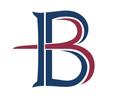Principal's Report

Brentwood Teaching and Learning Model Update:
We are excited to announce the launch of the next phase of Brentwood Teaching and Learning Model (BTLM) that staff and students have been developing this year.
At the beginning of the school year, we released the BTLM that was the culmination of work in 2022. This model outlines how high impact, evidence based teaching and learning practices are applied across all classrooms at Brentwood.
The focus of Semester One was the implementation of the Lesson Framework which was demonstrated with teachers using a consistent lesson plan that is posted on Microsoft Teams each week or lesson. Feedback from staff and students has been very positive so far with students reporting that they have a clearer understanding of the lesson objectives and their responsibilities. There has also been increasing evidence of students having a deeper understanding of the different phases of the lesson.
Over the course of Semester One, staff and students have been further developing the Student Learner Model to provide students with clearly articulated responsibilities for their learning at each phase of the framework. The premise behind this is that for students to grow and reach their potential as learners there needs to be a partnership where both the teacher and student have clear responsibilities in teaching and learning process. A framework such as this will further support students in improving their agency in learning and wellbeing so that they can achieve our vision where ‘we learn as a connected community to grow as individuals who are future ready’.
Lesson Framework and Student Learner Model:
I DO:
| Teacher Will | Student Will |
Set goals for the lesson through crafting Learning Intentions and Success Criteria that support students learning growth by building on their prior knowledge and skills
| Actively listen to teachers and peers and ensure that focus is being directed to the aims and goals of the lesson, striving to avoid distractions |
Teach key concepts, skills and vocabulary using a scaffolded approach to ensure that all students have 'entry points' into the learning
| Make connections to their prior learning (may involve taking notes where applicable) |
| Model the learning process including explicit teaching around the thinking routines and processes required for students to be successful | Ask clarifying questions to help develop a deeper understanding of the content being taught |
WE DO:
| Teacher Will | Student Will |
Model, guide, question and prompt students to develop their understanding of key concepts, skills and thinking processes
| Apply new skills with guidance and ask questions to consolidate understanding |
| Provide opportunities for students to discuss, share and build their thinking and ideas | Engage and actively participate in class discussions and learning activities
|
| Check for understanding and clarify misconceptions through a range of responsive teaching techniques | Seek feedback from teachers and peers to consolidate their understanding |
YOU DO TOGETHER:
| Teacher Will | Student Will |
Promote collaborative practices by praising and acknowledging students working well together and redirect or provide support for students who are reluctant to contribute
| Actively engage with peers by listening, being open to sharing ideas and hearing different perspectives |
| Check In with groups to monitor progress and establish understanding | Give and receive feedback providing constructive feedback to peers when appropriate. Be open to and action feedback provided
|
| Be Responsive and clarify any misconceptions | Be accountable and uphold roles and responsibilities assigned to them, contributing equally to group tasks |
YOU DO INDIVIDUALLY:
| Teacher Will | Student Will |
Support students progression in their learning by providing students with individualised and targeted feedback
| Demonstrate resilience and perseverance, communicating with teachers how they feel and asking for help and/or feedback |
| Check in using various strategies to monitor students' progression in their learning and wellbeing | Take pride in their work ensuring they are challenging themselves, taking risks and completing tasks to the best of their ability
|
| Celebrate and praise students when they demonstrate growth in their learning and/or their approach and engagement with the learning process | Reflect on their learning through self-assessment against rubrics, as well as evaluating their progress towards achieving learning intentions and demonstrating success criteria |
Culture of Growth Principles:
The Culture of Growth Principles component of the BTLM articulate and define the characteristics of a culture that will further support our students to grow as learners and people. These principles (below) further support and guide the Lesson Framework and Student Learner Model as they promote the behaviours and actions that members of our school community demonstrate to live a culture of growth where everyone challenges themselves to step outside of their comfort zone.
For our teachers we have taken these principles and developed a set of behaviours that they demonstrate when working with students in the classroom as part of the BTLM and when collaborating with each other in how to best support their students learning and wellbeing.
July 18 Staff Professional Learning Day:
On July 18, staff engaged in their third Professional Learning Day for 2023 with a focus on the following:
- Brentwood Teaching and Learning Model (Lesson Framework and Student Learner Model)
- Numeracy across the curriculum
- High Impact Wellbeing Strategies
These opportunities are an essential part of staff development as there are only limited times when staff are all able to collaborate together for an extended period of time. On this occasion, staff worked in collaborative teams with members of the Leadership Team unpacking the Student Learner Model and discussing how it will be incorporated into curriculum during Semester Two.
The session on Numeracy highlighted to staff that Numeracy is not Mathematics; rather Mathematics is a tool in understanding Numeracy. Numeracy is also evident in all subjects and therefore all teachers are ‘teachers of numeracy’ at Brentwood. This session was able to provide staff with professional learning on the four proficiencies of numeracy:
Staff were able to explore these and work within their faculties to discuss how they can be enhanced throughout the curriculum. This will support our focus on further growth in numeracy outcomes for all students.
Both a focus on learning and wellbeing are central to the Brentwood Teaching and Learning Model. Therefore, the afternoon was spent continuing the exploration of seven High Impact Wellbeing Strategies that teachers use in the classroom to enhance student learning with a focus on promoting coping strategies in the classroom and providing teachers with information on how to facilitate a referral to our Wellbeing Team.
Most pleasing about this day was that it was delivered ‘in house’ with various members of the Leadership Team facilitating each session and a range of staff sharing their best practice. I would like to thank and acknowledge all the staff involved in bringing the day together and the staff for their engagement in their own professional growth so that our students continue to experience the best possible learning environment.
NAPLAN:
Earlier this week the 2023 NAPLAN results were released to schools. This year there have been changes to the reporting of the reporting of student results. These are changes being introduced nationally by the Australian Curriculum Assessment and Reporting Authority (ACARA). NAPLAN will continue to measure student achievement in numeracy, reading, writing, spelling, and grammar and punctuation but the results will now be presented in 4 proficiency levels: These are:
- Exceeding: the student's result exceeds expectations at the time of testing.
- Strong: the student's result meets challenging but reasonable expectations at the time of testing.
- Developing: the student's result indicates that they are working towards expectations at the time of testing.
- Needs additional support: the student's result indicates that they are not achieving the learning outcomes expected at the time of testing. They are likely to need additional support to progress satisfactorily.
This change will give schools, parents and carers clearer information that details student achievement against new proficiency levels.
Students’ NAPLAN reports will continue to show how they are tracking against their peers and provide an indication of their skill levels against national averages and where we would expect them to be in order to get the most out of schooling. This provides valuable information to teachers about how we can continue to support your child.
Each set of NAPLAN results is an important milestone but it’s also important that students know that one result does not define them – these results are about making sure every student gets the support they need so they can continue to get the best from their learning.
Results packs will be sent home to all Year 7 and 9 families and include further information about what the new proficiency levels mean.
The results pack will include your child’s results as well as further information about what the new proficiency levels mean. Should you have any questions regarding these changes to NAPLAN reporting, please feel free to email me: Ben.Franklin@education.vic.gov.au
From a school perspective it was very pleasing to see Brentwood Students achieving some outstanding results with an overwhelming number of students achieving either ‘exceeding’ or ‘strong’ results. Below is a summary for Year 7 and 9:
| Percentage of Year 7 students achieving Exceeding or Strong. | Percentage of Year 9 students achieving Exceeding or Strong | |
| Reading | 90% | 75% |
| Writing | 85% | 80% |
| Spelling | 89% | 85% |
| Numeracy | 88% | 81% |
| Grammar & Punctuation | 82% | 79% |
John Ballagh
Principal




